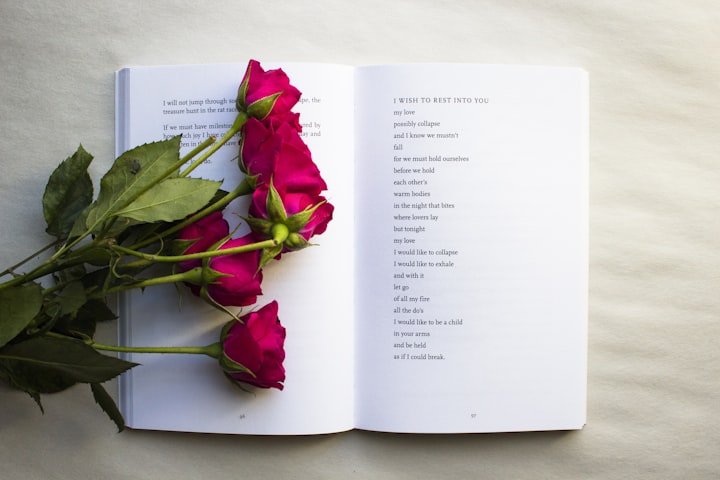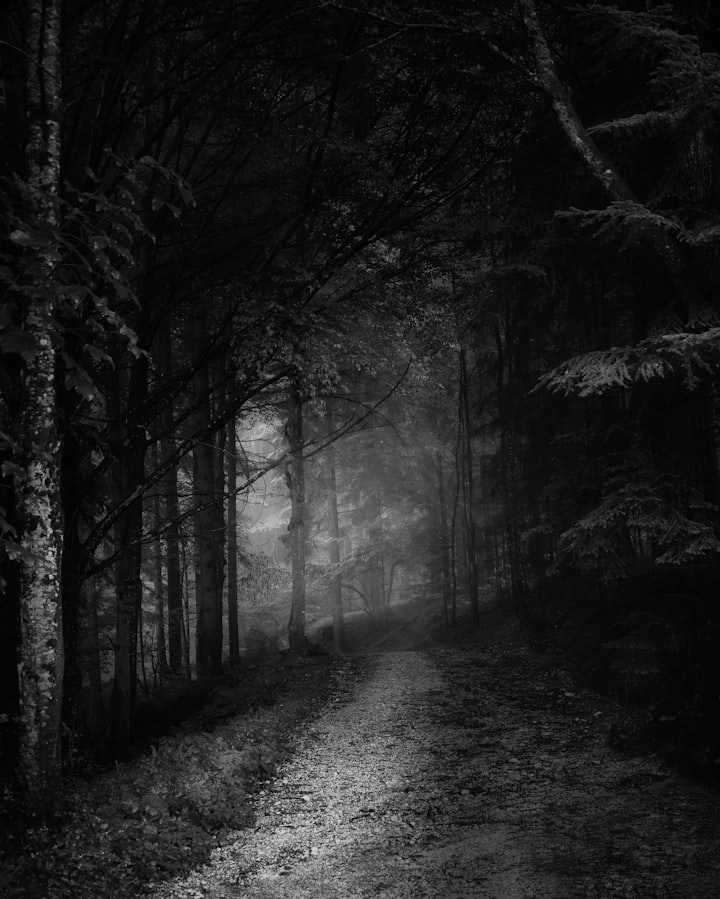Poetry Doesn't Have to be Poetic: How to Write Without Pressure
Poetry is more than an art form.

I started writing poetry a few years ago, back when I first began my University course. There were so many talented writers, all who dabbled in differing genres and forms of the written word, and I was astounded at the content they could pour onto the page. I began to doubt myself, but my stubborn arse wouldn't let itself give up. Instead, I created a poetry instagram and began uploading my first attempts directly to the world wide web for all to see.
And honestly? They weren't great.
I tried to recount what I'd learned from my GCSE English Literature class, which was my first mistake. Academics were never really my thing, and studying poetry with such a scrutinising eye left me with a disdain that I hadn't yet shaken off. I aced the exam, but left with relief that I'd never have to look at another poem again. And so, of course, I'd retained very little from what I'd learned, aside from the few verses I had memorised from John Keats' Lamia.
But at the time? My God, I was so proud! I thought I'd cracked the code to what poetry was, and I was anxiously awaiting for the round of applause (likes) to start pouring in.
Admittedly, I got a few, but no one was gushing over my poetic prowess, and now, looking back, I can see why.
There was no love in the poetry I had written. The lines were empty metaphors sprinkled with pretty words that really didn't mean anything. I hadn't written the poetry for me, but for what I assumed an audience would want to read, and that was my second mistake.
My illusion came crashing down upon reading the harsh (yet fair) criticism my professor had given me on one of my assignments. He'd told me the poem was lacklustre, and void of any real depth or meaning, which shocked me - I hadn't even considered that poetry was meant to mean something, I'd thought it was just meant to sound, well, poetic. His words got me thinking. I decided to go searching for modern poetry - something I should have done in the beginning - and I was absolutely stunned. Half of the poems I read weren't littered with fancy words, or complex phrases that alluded to nothing. They were raw, emotional. They hit me somewhere deep, and that was when I began to understand. Poetry is a part of the soul. It's an artform, yes, but for many it acted as sort of therapy, and that realisation was when I began to experiment.
I began to scribble down the absolute worst poems, but that didn't matter, because they were for my eyes only. I tapped into a part of me that I often kept closed, and wrote words straight from my heart, without thinking too much about the rhythm, or whether there was a 'prettier' word that could be used. I filled a notebook quickly, and felt all the better for it.
I went back over what I'd written, and edited it. Now that the raw emotion was on the page I was able to sculpt it into a poetic verse that I was proud of, and once I was happy, I uploaded it to my account, once again hoping to please an audience, but more so proud for what I'd achieved.
These poems had a significantly better impact. I receievd many a comment over the beauty of my words, about how my audience could relate to how I was feeling, because they had felt it too. I've been writing poetry for just under three years now, and it's a hobby close to my heart. I still have a lot to learn going forward, but the connection I'm able to share with so many others around the world is one that keeps me coming back time after time to put pen to paper.
And so, my advice to any budding poets out there is this - write for yourself. Write what you know, what you feel, and worry about how it sounds later. Let your poetry breathe naturally before you try to fit it into its own pretty little box. It will not only vastly improve the quality of what you write, but will help you as a person, with whatever obstacles life may have thrown you over the years. Keep writing, and most importantly, keep reading and connecting with other poets around the world.
If you're struggling for what to say, why not take a look at my article on how to defeat writer's block.
About the Creator
Jade Hadfield
A writer by both profession and passion. Sharing my stories about mental health, and my journey to becoming a better writer.
Facebook: @jfhadfieldwriter
Instagram: @jfhadfield
Twitter: @jfhadfield
Fiverr: https://www.fiverr.com/jadehadfield
Reader insights
Outstanding
Excellent work. Looking forward to reading more!
Top insights
Expert insights and opinions
Arguments were carefully researched and presented
Eye opening
Niche topic & fresh perspectives
Heartfelt and relatable
The story invoked strong personal emotions






Comments (1)
Very true I love it speaks the truth. Poetry is therapy and it deff helps heals wounds. I started to write soon after I lost my Dad years ago. Thank you love I enjoyed reading.